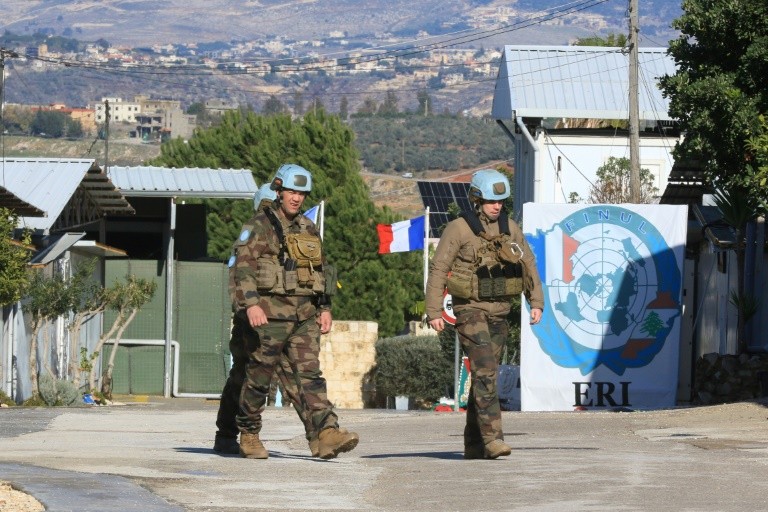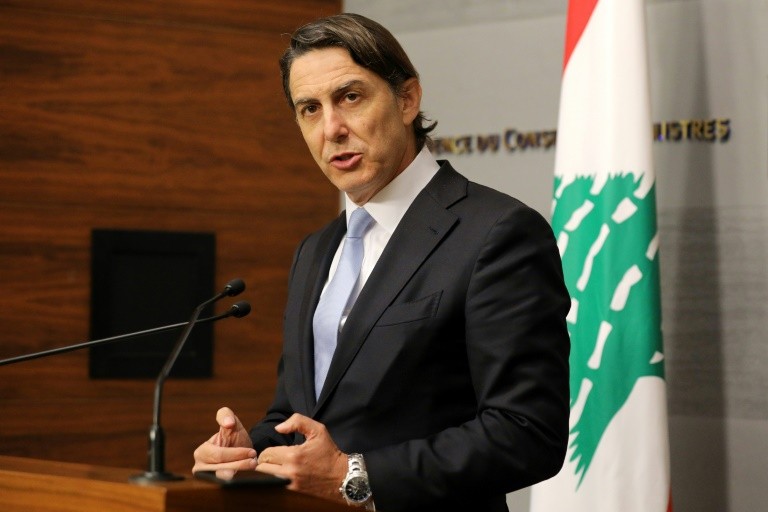
Visiting US envoy Amos Hochstein said Israeli forces began withdrawing on Monday from a south Lebanon border town more than halfway into a fragile ceasefire between Israel and Hezbollah.
It is the second such pullout since a November 27 ceasefire, and came after United Nations peacekeepers and Lebanon's prime minister late last month called on the Israeli army to speed up its withdrawal from Lebanon's south.
"The Israeli military started its withdrawal from Naqura... and back into Israel proper today, south of the Blue Line," Hochstein told reporters, referring to the UN-demarcated boundary between the two countries.
"These withdrawals will continue until all Israeli forces are out of Lebanon completely, and as the Lebanese army continues to deploy into the south and all the way to the Blue Line," he added after meeting with parliamentary speaker Nabih Berri, an ally of the Iran-backed Hezbollah movement.
"I have no reason not to expect that all parties -- all parties -- will remain committed to implementing the agreement that they agreed to," he added after meeting Prime Minister Najib Mikati, and following accusations from Israel and Hezbollah that each side was violating the deal.
Israel in September stepped up its bombing campaign and later sent troops into Lebanon following nearly a year of exchanges of cross-border fire initiated by Hezbollah over the war in Gaza.
Under the terms of the ceasefire which Hochstein helped broker, the Lebanese army is to deploy alongside United Nations peacekeepers in the south as the Israeli army withdraws over a 60-day period.
Hezbollah is to pull its forces north of the Litani River -- about 30 kilometres (20 miles) from the border -- and dismantle any remaining military infrastructure in the south.
Mikati called for "a clear timetable to complete the Israeli withdrawal before the end of the 60-day deadline", according to a statement released by his office.
It added that any "talk of Israel's intention to extend the ceasefire deadline is firmly rejected".
The Lebanese military said that "army units have stationed around the town of Naqura... and began deploying there in coordination with the United Nations Interim Force in Lebanon", referring to UNIFIL, whose headquarters is in Naqura.
The deployment came "in parallel with the Israeli enemy's withdrawal", the statement said, and coincided "with a meeting of the five-member committee" overseeing the ceasefire that was also attended by Hochstein.
The Israeli army told AFP that it "operates according to the directive of the political echelon and is committed to the understanding in regards to the ceasefire conditions".
A committee composed of Israeli, Lebanese, French and US delegates alongside a UNIFIL representative is tasked with ensuring any ceasefire violations are identified and dealt with.
Hochstein said he co-chaired the third meeting of the committee on Monday together with United States Major General Jasper Jeffers, adding that "the mechanism is working well".
He said that while the ceasefire implementation may not have proceeded "as quickly as some wanted... what I heard in Naqura today gives me hope that we're on the right track".
Israeli Defence Minister Israel Katz on Sunday accused Hezbollah of not withdrawing "beyond the Litani River" as stipulated, and of not meeting other terms of the ceasefire, after Hezbollah accused Israel of violations.
On December 11, Lebanon's army said it deployed around the border town of Khiam in coordination with UNIFIL, also following the withdrawal of Israeli troops from the area.
The US military said it was the first such Israeli force withdrawal and subsequent Lebanese army deployment under the ceasefire.
During Monday's visit, his first since the truce, Hochstein also urged political consensus in Lebanon ahead of a presidential vote this week.
Lebanon has been without a president for more than two years amid bitter divisions between Hezbollah and its opponents.
"These are critical times for Lebanon... not just to implement this agreement, but to come to political consensus, to focus on Lebanon for Lebanese people," Hochstein said ahead Thursday's vote.
"This is an opportunity... to really just focus on rebuilding the economy," on implementing "reforms that will allow for investment, and returning the country to economic growth and prosperity for all," Hochstein added.
The Lebanese army said Hochstein and Jeffers also met with army commander Joseph Aoun on Monday, discussing the ceasefire.
Aoun's name has been floated as a potential presidential candidate.









